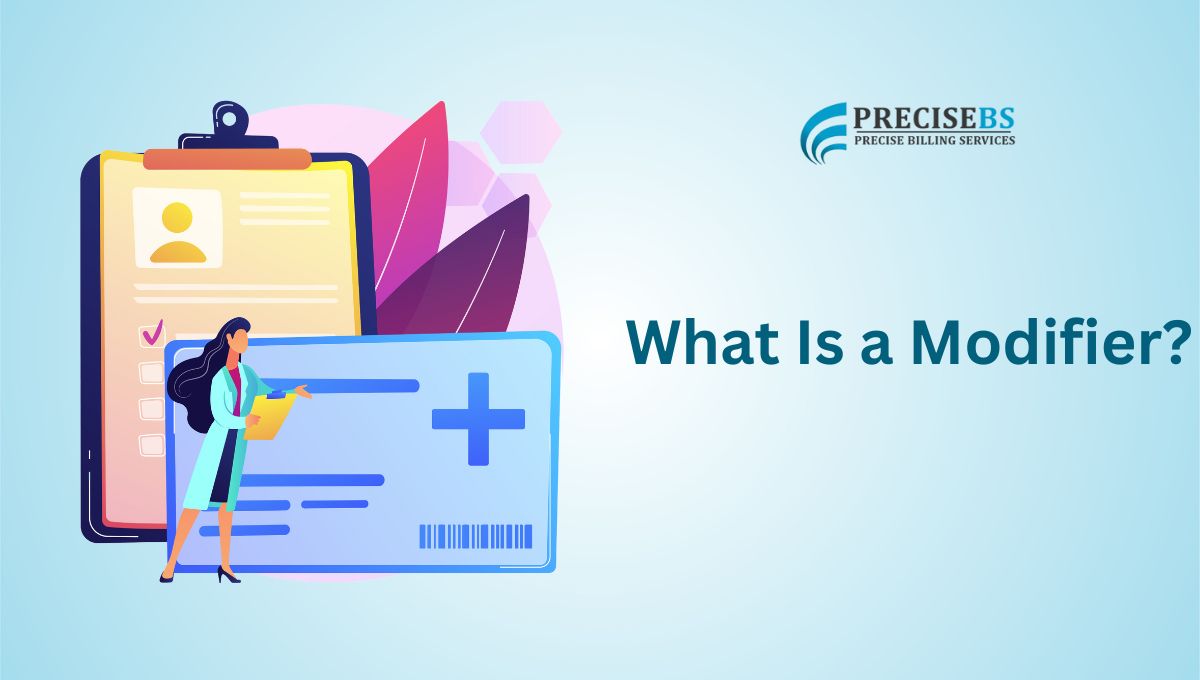Modifiers in medical billing are two-digit codes that provide crucial additional information about procedures or services, ensuring accurate reimbursement for healthcare providers. They clarify and modify primary procedure codes, reducing the risk of claim denials or underpayments. With various types of modifiers and specific billing guidelines to follow, understanding and using modifiers effectively is essential for a successful medical billing process.
Table of Contents
Introduction
In the world of medical billing, understanding the role of modifiers is crucial. These little additions to billing codes can make a big difference in claims processing and reimbursement. In this detailed article, we’ll delve into the intricacies of modifiers in medical billing. From defining what a modifier is to exploring its purpose for coders, billing guidelines, and types of modifiers, we’ve got you covered.
What Is a Modifier?
Modifiers are vital components in medical billing. They are two-digit codes that provide additional information about a service or procedure performed by a healthcare provider. These codes help ensure that the healthcare provider receives proper reimbursement for their services.
Modifier Meaning in Medical Billing
In the context of medical billing, the meaning of a modifier is to clarify, describe, or alter a procedure code. Modifiers are used to provide more specific information about a service, such as indicating that a service was performed on the left side of the body or during a second surgery.
What Does Modifier Mean in Medical Billing?
In medical billing, a modifier means an extra code attached to the primary procedure code. It modifies the code to better describe the This added information ensures that insurance companies and payers have a clear understanding of the services rendered.
Definition of Modifier
A modifier is a two-character code that supplements the main procedure code, altering its meaning to offer more details about the service provided.
Level 2 Modifiers
Level 2 modifiers are extensions of the primary modifier system. These modifiers provide even more specific information about a procedure. Coders use them to convey precise details that can impact reimbursement.
Define Modifiers
Modifiers, in medical billing, are codes that define or modify the main procedure code to provide additional information, making it more specific and accurate.
What Is the Purpose of Modifier for Coder?
The purpose of modifiers for coders is to ensure that the billed services accurately reflect the procedures performed. Modifiers help coders communicate specifics to insurance companies, reducing the chances of claims being denied or underpaid.
Where Is It Used in Billing?
Modifiers are used in billing to communicate unique circumstances or additional information about a procedure. They help clarify the service provided and the conditions surrounding it.
How Many Types of Modifiers in Medical Billing?
There are numerous types of modifiers in medical billing, each with its specific purpose. These modifiers cover a wide range of scenarios, from anatomical modifiers to pricing modifiers.
What Are Billing Guidelines for Modifiers?
Billing guidelines for modifiers are established rules and practices that coders and healthcare providers must follow when using modifiers. These guidelines ensure uniformity and accuracy in the billing process.
What Is JW and JZ Modifier?
The JW and JZ modifier are specific modifiers used in medical billing. The JW modifier is used to indicate that a drug or biological product was discarded and not administered to a patient, while the JZ modifier is used for dental procedures.
JW Modifier in Billing
The JW modifier plays a crucial role in indicating the proper handling of drugs and biological products in medical billing, ensuring accurate reimbursement.
JZ Modifier in Billing Guideline
The JZ modifier is used for dental procedures in billing, helping to distinguish and provide detailed information about specific dental services.
Define Billing Guidelines
Billing guidelines in medical billing are a set of rules and standards that healthcare providers must adhere to when submitting claims. These guidelines ensure consistency and accuracy in the billing process.
What Are Billing Errors?
Billing errors are common issues in medical billing that can result in claim denials or underpayments. These errors can include inaccurate coding, missing information, or failure to follow billing guidelines.
FAQs (Frequently Asked Questions)
What are modifiers in medical billing?
Modifiers in medical billing are two-character codes used to provide additional information about a procedure or service, making it more specific and accurate.
Why are modifiers essential in medical billing?
Modifiers are essential because they help ensure accurate reimbursement for healthcare providers by providing specific details about a service, reducing the likelihood of claim denials or underpayments.
How many types of modifiers are there in medical billing?
There are numerous types of modifiers in medical billing, each serving a unique purpose. They cover a wide range of scenarios and situations.
What is the JW modifier, and when is it used?
The JW modifier is used to indicate that a drug or biological product was discarded and not administered to a patient. It is important for accurate reimbursement in medical billing.
What are common billing errors, and how can they be avoided?
Common billing errors include inaccurate coding, missing information, and failure to follow billing guidelines. To avoid these errors, healthcare providers and coders must adhere to proper billing practices.
How can I ensure successful medical billing with modifiers?
To ensure successful medical billing with modifiers, it’s essential to understand their purpose, follow billing guidelines, and stay updated on the latest coding changes and requirements.
Conclusion
In the world of medical billing, modifiers are the unsung heroes that ensure healthcare providers receive fair compensation for their services. These two-character codes may seem small, but their impact is significant. From defining what a modifier is to exploring the various types and billing guidelines, this article has provided an in-depth understanding of modifiers in medical billing. By following the guidelines and utilizing modifiers effectively, healthcare providers can minimize billing errors and secure the reimbursement they deserve.

